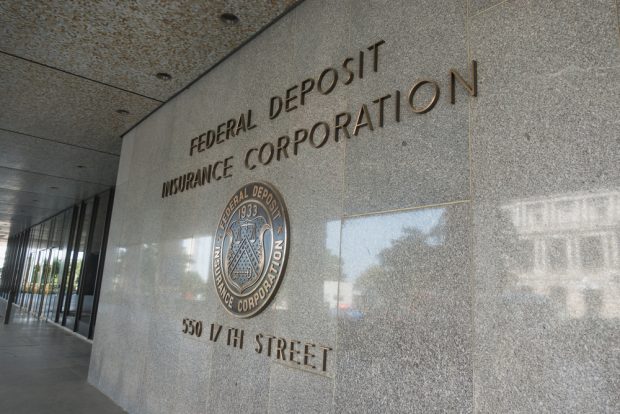 Credit/Shutterstock
Credit/Shutterstock
After discovering two years ago that bankers could convince state regulators that doctors could be bankers, Virginia Credit Union has completed its transition to a federal credit union.
But the signs will remain the same, keeping the word "federal" out of public sight and saving members thousands of dollars on new signs.
Recommended For You
Virginia Credit Union (VACU) of Richmond ($5.3 billion in assets, 329,888 members as of March 31) joined 69 credit unions that switched between federal and state charter types from December 2017 through March 2024. Of the total, 38 shifted to a state charter and 31 to a federal charter.
VACU announced its plans to seek a charter change in August 2023, leaving in the dust its primary regulator: The State Corporation Commission's Bureau of Financial Institutions.
It all started back in 2019 when the 10,000-member Medical Society of Virginia wanted to become a member segment of Virginia Credit Union and the Virginia Bankers Association raised a fuss.
The bankers reminded the state bureau that a Virginia law that says credit unions can't add a segment of more than 3,000 potential members unless "the Commission finds that the formation of a separate credit union by a group desiring such services is not practicable, or is not consistent with reasonable safety-and-soundness standards."
The doctors told the bureau that trying to form a credit union would — among other things — wipe out their assets.
The state bureau sided with the bankers in 2022, finding it was practical, safe and sound for the Medical Society of Virginia to bet its assets to launch its own credit union.
Virginia Credit Union President/CEO Chris Shockley announced in August 2023 that it would seek permission from members and the NCUA to switch to a federal charter, which he said would result in "more opportunities to provide competitive value and exceptional service to even more members and communities in Virginia."
The credit union also told members that instead of being regulated by both the Virginia bureau and the NCUA, it would be subject only to the NCUA, which it said would "simplify our regulatory environment and allow us to operate under one set of rules instead of two. "
"Being solely regulated by NCUA will be less complex and will expand the opportunities for VACU to offer new services and welcome new member groups," it said on its website.
From Jan. 1 2023 through March 31 this year, four credit unions switched to state charter and 10 switched to a federal charter. The 14 credit unions are:
1. 44 North Credit Union of Lebanon, Ore. ($160.4 million in assets, 13,304 members), which shifted from a federal to a state charter in the first quarter.
2. Sesloc Credit Union of San Luis Obispo, Calif. ($1.2 billion in assets, 58,044 members), which shifted from a federal to a state charter in the first quarter.
3. Coasthills Federal Credit Union of Santa Maria, Calif. ($1.8 billion in assets, 77,413 members), which shifted from a state to a federal charter in the first quarter.
4. Space Age Credit Union of Aurora, Colo. ($167.4 million in assets, 16,624 members), which shifted from a federal to a state charter in 2023.
5. Memorial Employees Financial Credit Union of Hollywood, Fla. ($89.4 million in assets, 9,050 members), which shifted from a federal to a state charter in 2023.
6. Oklahoma's Federal Credit Union of Oklahoma City ($796 million in assets, 52,743 members), which shifted from a state to a federal charter in 2023.
7. Envista Federal Credit Union of Topeka, Kan. ($547 million in assets, 45,997 members), which shifted from a state to a federal charter in 2023.
8. River Region Community Federal Credit Union of Jefferson City, Mo. ($508.4 million in assets, 30,589 members), which shifted from a state to a federal charter in 2023.
9. Navigator Federal Credit Union of Pascagoula, Miss. ($378.8 million in assets, 45,962 members), which shifted from a state to a federal charter in 2023.
10. Mutual Federal Credit Union of Vicksburg, Miss. ($302 million in assets, 23,740 members), which shifted from a state to a federal charter in 2023.
11. Members Exchange Federal Credit Union of Jackson, Miss. ($130.1 million in assets, 13,080 members), which shifted from a state to a federal charter in 2023.
12. Instep Federal Credit Union of New Orleans ($46.9 million in assets, 5,139 members), which shifted from a state to a federal charter in 2023.
13. CCE Federal Credit Union of Fargo, N.D. ($15.3 million in assets, 1,373 members), which shifted from a state to a federal charter in 2023.
14. Revere Firefighters Federal Credit Union of Revere, Mass. ($6 million in assets, 220 members), which shifted from a state to a federal charter in 2023.
© Touchpoint Markets, All Rights Reserved. Request academic re-use from www.copyright.com. All other uses, submit a request to [email protected]. For more inforrmation visit Asset & Logo Licensing.







